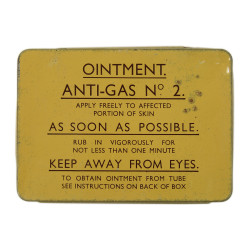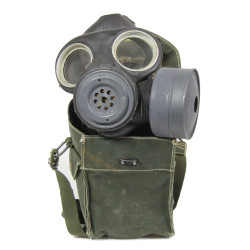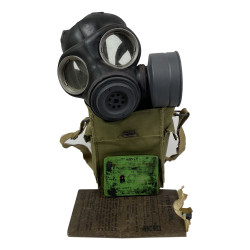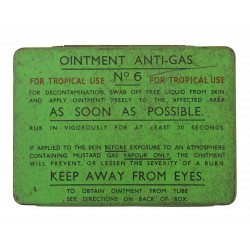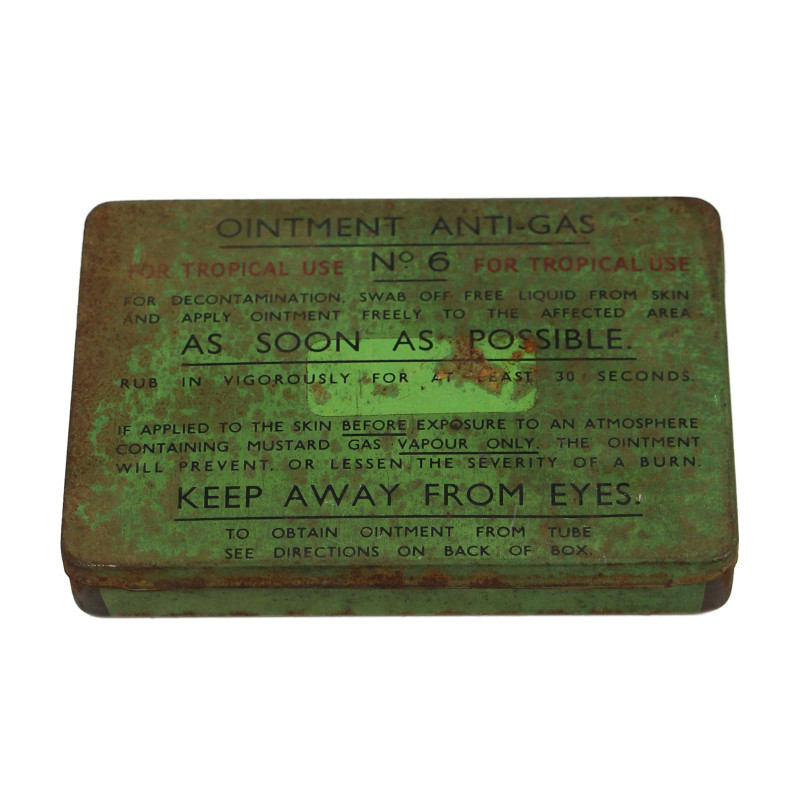




Tin, Anti-Gas Ointment, No. 6, For Tropical Use
€45.00
Tax included
Genuine WWII British tin, Anti-Gas Ointment No. 6, intended for tropical use.
The cream contained in each tube could either be applied before or after exposure to mustard gas vapour, thus preventing or lessening the severity of burns. This type of tin was generally carried into the gas mask pouch.
Quite good overall condition.
Empty.




